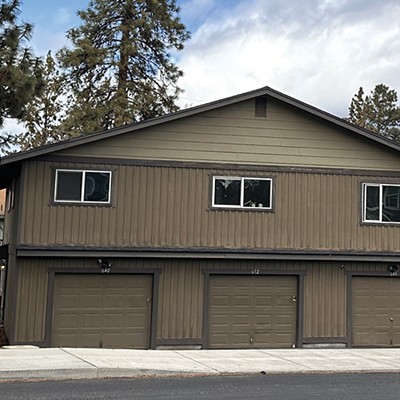Let's get one fact out there right away: Whatever happens with the global pandemic between now and September, schools will not look the same in the 2020-21 school year. As much as anyone might wish it not to be so, there's simply no use in continuing to lament about how things won't be the same. Things will. not. be. the. same.
On the national stage, some, including the President of the United States, are demanding a "full reopening" of schools this fall. This is a bully tactic and a dose of absolutism that has no place in this complicated time in history. Black-and-white proposals are not helpful, and they ignore any number of concerns and considerations around health, safety and equity. Again, things will not be the same this school year.
Much like every other school district in the nation, leaders at Bend-La Pine Schools are facing a tremendous challenge in balancing the needs of thousands of parents, teachers, staff and kids. In rolling out its "ABC" plan for the coming school year, we believe its leaders—including newly named Interim Superintendent Lora Nordquist—are striking a balance that appears to be the best-possible plan, given the circumstances. Families have options, and that's the way it should be, now and going forward.
This from Michelle Goldberg's opinion column in The New York Times July 10: "At the end of June, the American Federation of Teachers surveyed its members and found a broad willingness to return to the classroom. Two-thirds of respondents said school buildings should reopen in some capacity, and 76 percent said they'd be comfortable being in school with the proper safeguards."
Parents across the U.S.—low-income and otherwise—have come to rely on public schooling as a form of child care, and when public schools are closed, a great many families suffer.
tweet this
What the "proper safeguards" exactly are is a million-dollar question, and as that survey highlights, there is no possible scenario that is going to make everyone feel 100% safe. Still, here in Bend and La Pine, sending kids in grades K-5 back to school full time, while adopting a schedule of part-time in-person instruction for older kids (and also allowing every family to choose to do at-home instruction) seems to balance kids' need to engage in a format beyond a computer screen, and parents' need to work and go about their lives with their children safely cared for. The plan for grades 6-12 has some similarities to the system Germany has adopted for decades: Kids spend part of their time in a classroom, and then a good portion of their day at home, carrying out the tasks given to them by teachers.
But that notion of a part-time at-home schedule for some kids, of course, does bring up a pain point: Child care is dangerously lacking in our community, and nationwide. Parents across the U.S.—low-income and otherwise—have come to rely on public schooling as a form of child care, and when public schools are closed, a great many families suffer. Even as some workplaces shift workers' schedules and working conditions to accommodate working parents, perhaps even permanently, others cannot. Some work simply cannot be done remotely, and the children of those working outside the home have as much right to quality education as those whose parents are more sufficiently able to juggle work and family.
Plenty of people are taking to social media to weigh in about the plan for education systems locally and nationally right now. And, unfortunately, much like the mask debate, we find people attempting to find an ideological team to join, rather than giving administrators the benefit of the doubt as they navigate an impossible line between safety and full-time education. This is not helpful.
Here in Bend-La Pine Schools, leaders have at least rolled out their plan after taking input from families and staff. Some districts have not done that.
We don't envy those whose job it is to create these school schedules, who must strive to best balance the varying needs of higher-risk students (and staff), and to do it all while keeping their primary mission—to educate our children—at the forefront. This is tough stuff. But what we can do, as community members and parents and educators and students, is to share our perspective, to know that not everyone is going to agree, and then to trust that our educational leaders are listening and doing their best to balance it all. Measured decision-making, not absolutism, is the best course.





















